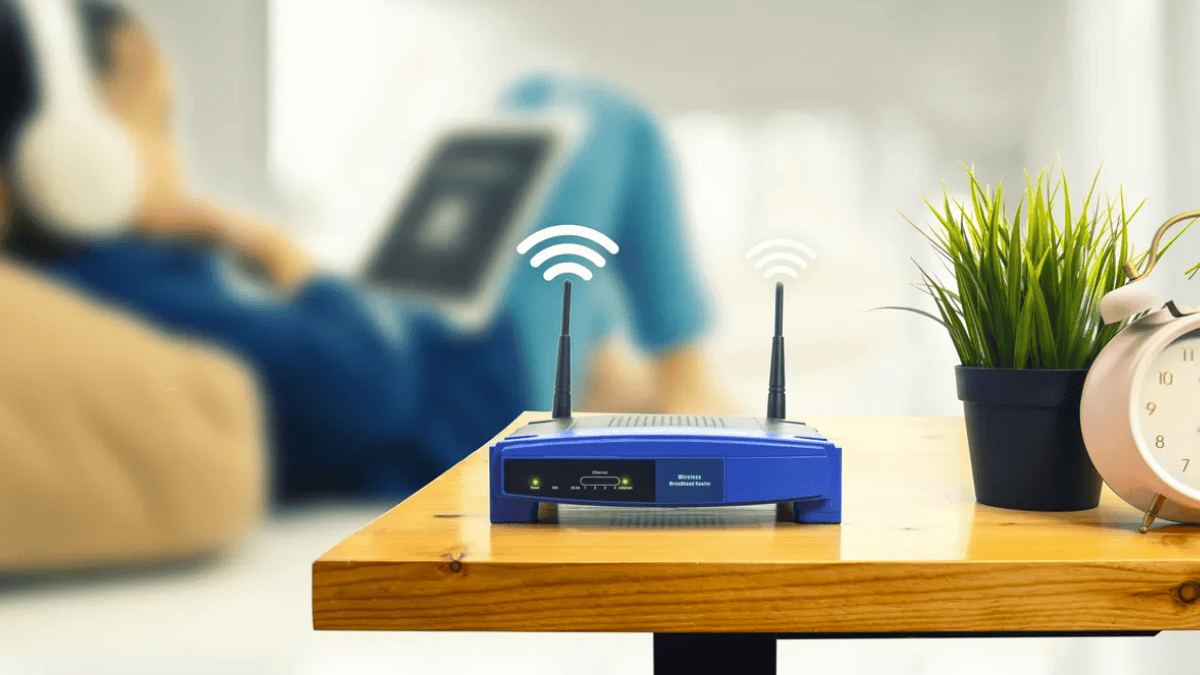If setting up an internet connection at home or in an office, you will often encounter two essential devices: a modem and a router. While both are critical components in delivering internet service, they serve distinct functions. Many people, especially those without a background in IT support or networking, tend to confuse the two. Understanding the difference between a modem and a router is key to setting up a stable and efficient home or office network. In this article, we will explore each device's role, how they work together, and why it's important to know when and how to use them.
What is a Modem?
A modulator-demodulator or modem is a device that connects your home or office network to the internet service provided by your internet service provider (ISP). Its primary role is to convert the signal from your ISP into a format that your devices can understand, effectively "modulating" and "demodulating" data between your network and the internet.

Function of a Modem
- Internet Access: The modem acts as the gateway to the internet by transmitting data from your ISP to your devices.
- Signal Conversion: It converts analog signals from the ISP into digital signals that your devices can use, or vice versa.
- Connection to ISP: The modem is connected directly to the ISP’s infrastructure, either through a phone line (DSL), coaxial cable (cable internet), or fiber optics.
Typically, you will only need one modem in your household or office to receive internet service. The modem is what establishes the physical link to the internet, but it does not handle the distribution of internet access to multiple devices.
4 Types of Modems
There are several types of modems based on the type of internet connection you have:
- Cable Modem: Used with cable internet services; connects to your ISP through a coaxial cable.
- DSL Modem: Used with DSL internet; connects to the ISP via a telephone line.
- Fiber Modem: Provides a connection through fiber-optic networks, offering faster speeds.
- Satellite Modem: Connects to the internet via satellite signals.
What is a Router?
A router is a device that takes the internet signal from the modem and distributes it to various devices in your home or office, either through Wi-Fi or wired connections. Think of the router as a traffic manager that directs internet data to the correct device, ensuring smooth and efficient network performance. The router manages local traffic within your network, making sure that data reaches the appropriate device based on the addresses it carries.
Function of a Router
- Traffic Management: The router ensures that data is directed to the correct devices within the network.
- Wireless Networking: Most modern routers are equipped with Wi-Fi capabilities, allowing devices to connect wirelessly.
- Network Security: Routers typically include built-in firewalls to protect your network from external threats.
- Multiple Device Support: Routers are designed to handle multiple devices simultaneously, whether they are wired or connected through Wi-Fi.
Unlike a modem, a router is not responsible for providing an internet connection but instead manages how the internet connection is shared across your devices.
3 Types of Routers
Routers come in various forms depending on their features and capabilities. Some common types include:
- Wired Routers: Devices that connect via Ethernet cables, offering stable and secure connections for devices.
- Wireless Routers: These routers use Wi-Fi to broadcast internet access to devices, offering flexibility and mobility.
- Mesh Routers: Mesh networking systems are designed to provide whole-home Wi-Fi coverage with multiple nodes that work together seamlessly.
5 Key Differences Between a Modem and a Router
While both devices are critical to internet connectivity, they serve very different purposes. Below is a comparison of the key differences between a modem and a router:
1. Functionality
- Modem: A modem connects your network to the ISP, making it possible to access the internet.
- Router: A router distributes the internet connection from the modem to various devices, either wirelessly or through Ethernet cables.
2. Role in the Network
- Modem: The modem is the device that facilitates communication between your home or office network and the internet. It does not handle internal network traffic.
- Router: The router creates and manages the local network (LAN) inside your home or office, ensuring that devices can communicate with each other and access the internet.
3. Connection Type
- Modem: The modem connects to your ISP using a coaxial, phone, or fiber-optic line.
- Router: The router connects to the modem through an Ethernet cable and transmits the internet signal to devices within your local network.
4. Device Coverage
- Modem: A modem typically supports a single internet connection from the ISP.
- Router: A router can support multiple devices simultaneously, both wired and wireless, creating a network within your home or office.
5. Technological Features
- Modem: A modem’s features are focused on internet signal conversion and connectivity to the ISP.
- Router: Routers come with features like Wi-Fi, multiple LAN ports, network security, and sometimes even built-in modems.
Why You Need Both a Modem and a Router
To establish an efficient network and internet connection, you need both a modem and a router. Here’s why:
Internet Access
- The modem is the first point of contact for internet data, allowing you to access the internet from your ISP.
Device Connectivity
- The router is responsible for distributing that internet access to all your devices, including smartphones, laptops, smart TVs, and more. Without a router, only one device can connect to the internet at a time, and there would be no Wi-Fi coverage.
Enhanced Network Management
- A router helps you manage your network by assigning local IP addresses to each device and prioritizing data for tasks like streaming, gaming, or work.
Network Security
- Routers typically include firewalls and security protocols, offering protection for your network. Without a router, you may be vulnerable to external threats.

How They Work Together
A modem and router work in tandem to create a seamless internet experience. When you connect to the internet, the following happens:
- The modem receives the internet signal from your ISP.
- The router then takes that signal and distributes it to your devices, whether through Ethernet cables or Wi-Fi.
- The router ensures that devices can communicate with each other on the local network and that the internet connection is used efficiently.
A Simple Analogy
Think of the modem as a water pipe bringing water (internet) into your home. The router acts as the plumbing system that directs the water to various faucets (devices) throughout the house.
Can a Modem and Router Be Combined?
Yes, some devices combine both a modem and a router into one unit. These modem-router combos are popular because they simplify setup and save space. However, while convenient, they may lack some advanced features found in standalone modems and routers. For example, you might not get the same level of customization and control over your network settings.
Unlock Smarter Technology with LK Tech
A modem serves as the gateway between your network and the internet, while a router allows your devices to connect and share that internet access. Understanding these key differences helps you make informed choices when setting up or troubleshooting your network. If you're setting up a new connection, enhancing your home network, or dealing with slow speeds, knowing how each device works is essential for maximizing performance. At LK Tech, we offer expert IT services in Cincinnati, providing tailored support for all your network needs. Reach out to us today, and let’s make sure your setup is running at its best.


